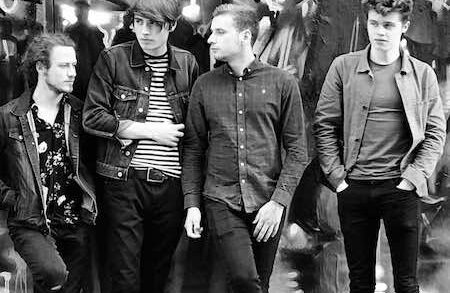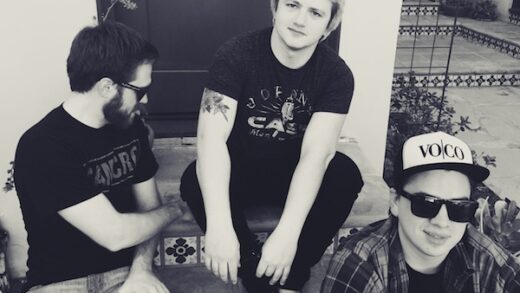by Kitty Empire
Islington Assembly Hall, London
The Welsh guitarist’s awe-inspiring technique and intense musicality made a transporting first gig back for our critic
Barefoot, wearing all black, a solitary guitarist sits on the stage, her face shrouded by a curtain of long hair, her hands a blur of motion. The sound she makes is so cavernous, evocative, and frenetic it sounds as though at least two more guitarists are hiding somewhere in the wings of this atmospheric art deco theatre.
They aren’t: Gwenifer Raymond – in her spare time a games designer, astrophysics PhD and punk drummer – attacks her songs with a technique called clawhammer. Transposed from the banjo, it uses the right hand – thumb and fingers curled in like a claw – to provide a rhythmic counterpoint to the singing work of the left, and its own subtle melodic storytelling as well.
She is legion. This Welsh musician plays really loud and really fast too, like a vengeful bluegrass musician conjuring up roiling fury, then dropping into languorous eddies, switching between paces with pin-sharp precision. Guitar playing should never be mere gymnastics – “shredding” for shredding’s sake – but Raymond combines awe-inducing technique with grace, depth and emotion.
“Hell for Certain,” a track from her 2020 album Strange Lights Over Garth Mountain – played in its entirety tonight – sounds even faster and more muscular than its recorded version. (In the video, shot by her mother, Raymond looks wryly uncomfortable in a lace dress, creepy Victoriana and taxidermy arrayed around her.) If anyone made bloody, dramatic Welsh westerns, her instrumentals would be the natural soundtrack. Another 2020 track, Gwaed am Gwaed, translates as “blood for blood”.
The venue’s usual capacity is nearly 900; social distancing has reduced it to 150 tonight. Those of us in the stalls are siloed into pods of two seats with a little table for drinks. But even with smaller numbers, the combination of space and enthusiastic warm bodies means that Raymond’s playing echoes around the space like a living thing, more three-dimensional and organic than its recorded version. Ah, gigs: this is my first one since March 2020.
The folk roots of Raymond’s music lie in faraway Appalachia; the acoustic blues of the American south are well represented too. Her specific field of solo guitar is known as “American primitive” – almost everyone involved now agrees that is a highly problematic name, because it both appropriates and patronises the work of its black inspirations, but a new one hasn’t been minted yet. John Fahey (1939–2001), the father of the genre, coined it, and a steady trickle of acolytes have since taken up this mesmeric, meditative form that, with its open tunings and air of mystery, has as much in common with Indian ragas and drone-based music as it does Anglo-US fingerpicking.
American primitive long remained the preserve of white guys. Great as many of them have been (the late Jack Rose in particular), that is now changing. A recent New York Times article profiled a series of non-white, non-male and non-binary solo guitar players breaking the mould; Raymond is one of the rising talents quoted. “The music can only get more interesting,” she says.
It does. Although audibly harking back to Fahey, Raymond is Welsh and based in Brighton (tonight’s support act, the excellent Nick Jonah Davis, is another American primitive-inclined Briton). Both have taken this twanging, rolling, heady form and given it an Old Country twist – in Raymond’s case, the haunt of vintage gothic horror films and the mists rising off the ancient Welsh landscape, where the veil between the worlds is, they say, a little thinner. Garth Mountain is where Raymond grew up, not far from Cardiff but very much its own place. The landscape provides links of another sort too. The working title for Hell for Certain was Coal Train Song, for the thundering locomotives that passed near her childhood home; you can hear their power and a sense of inevitable destination as you do in old Americana.
Continue reading via the UK Guardian
https://www.theguardian.com/music/rss





